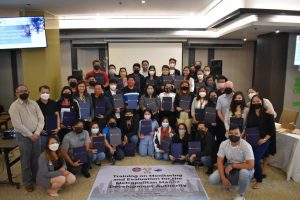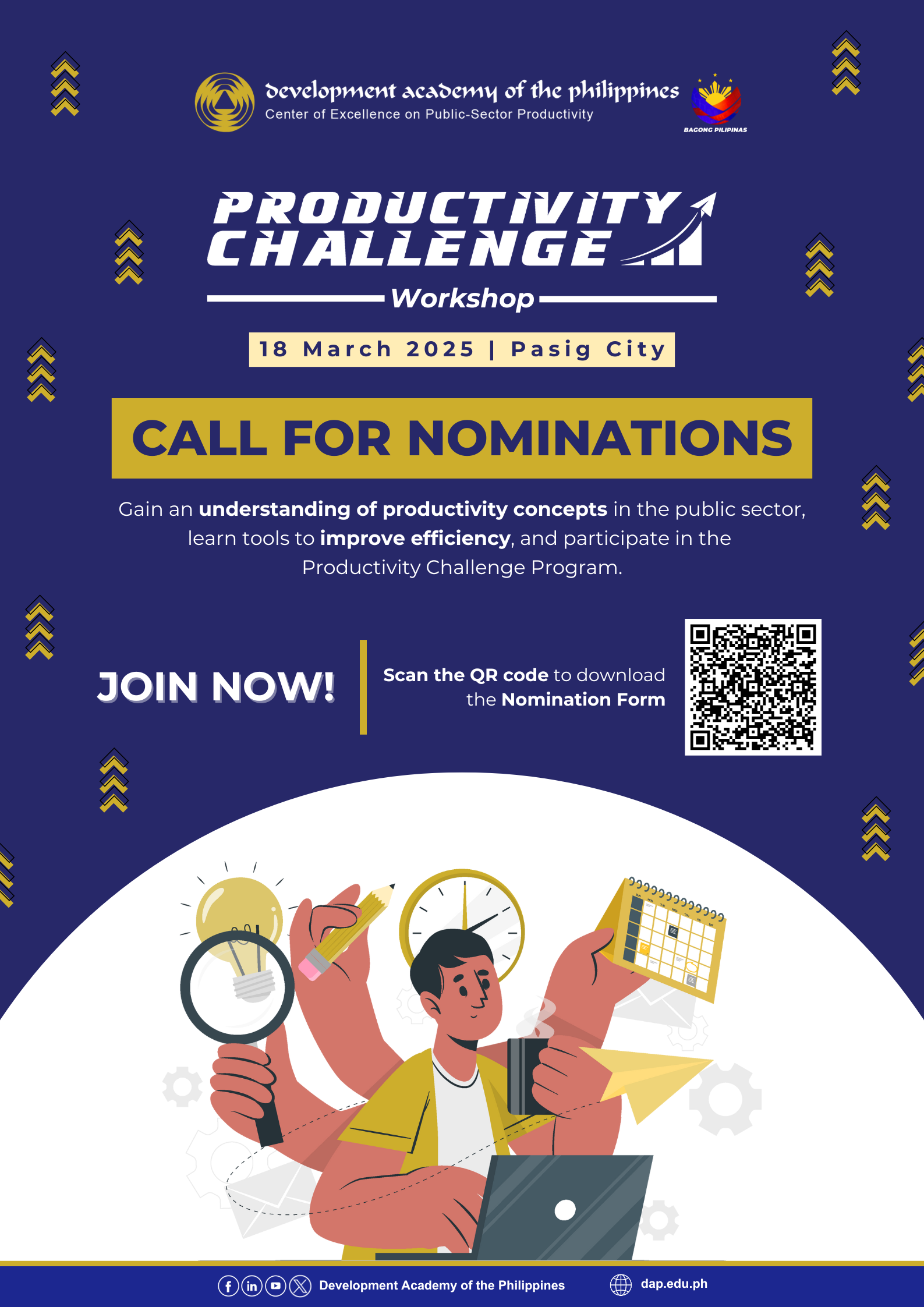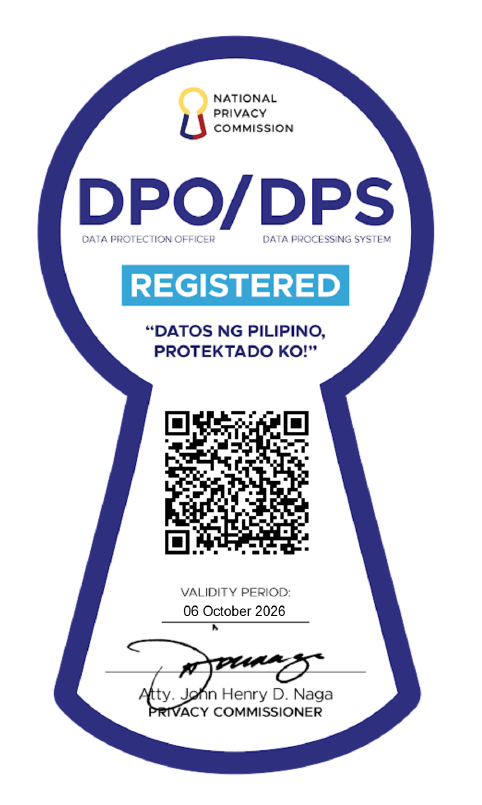
Participants of the Training on Monitoring and Evaluation for the Metropolitan Manila Development Authority with their training certificates after their three-day activity. Director Gilbert Lumantao (second row, right) and members of the project team join them as they pose for a class picture.
Photo by: Lean Rius Morales
The Development Academy of the Philippines, through its Center for Governance, concluded the hybrid “Training on Monitoring and Evaluation (M&E) for the Metropolitan Manila Development Authority (MMDA)” held at the West Avenue Suites in Quezon City.
Some 45 personnel from MMDA’s Metro Manila Flood Management Project (MMFMP) attended the training which aimed to equip them with the fundamental knowledge and skills on M&E of programs’ and projects’ performance using various tools including the logical framework by providing them with a pool of M&E experts to guide them in the three-day activity.
Jess David, chief economic development specialist at the National Economic and Development Authority, discussed the importance of M&E in the public sector management cycle. According to him, M&E is a continuous function that uses systematic collection of data on specified indicators to provide management and main stakeholders of an ongoing development intervention, specifying the extent of progress and achievement of objectives and progress in the use of allocated funds.
Meanwhile, Gilbert Lumantao, director of the DAP-CFG Policy Research Office (PRO), discussed the fundamentals of M&E and described the key elements and relations between projects, programs, and portfolios. He also underscored the importance of project management in relation to the mandate of MMDA as well as the constraints, growth of projects, and how M&E come into the life cycle of the project. He also handled the session of progress results and M&E as well as the development of an M&E plan.
On the other hand, Peter Dan Baon, program manager of the DAP Center of Excellence on Public Sector Productivity, taught the participants on establishing M&E through the use of the logical framework. He guided them in drafting logical frameworks through various exercises and practicing what they learned through a workshop session.
Dr. Josefina Almeda, executive director of the Philippine Statistical Research and Training Institute, talked about data collection techniques an analysis of M&E data using qualitative and quantitative methods. She emphasized that data is the heart and soul M&E.
Adelina Velasco, team leader of Sustaining Education Reform Gains (SERG) project of the Save the Children Philippines and Australia, tackled the session on reporting M&E results. She offered insights on the suggested order of how to communicate results to stakeholders or target groups.
Moreover, the participants shared their key takeaway from program: M&E will be able to address the right problem and implement the appropriate interventions that the general public needs. Further, they vowed to apply what their learnings to their projects, to give emphasis on the purpose and goals of our projects for better public service, and to go beyond their assigned tasks but also take the lead to self-monitor project progress, evaluate the project sustainability and relay concise and consistent M&E results through their written reports.
Rene Jay Dela Calzada, MMFMP project manager, in his closing remarks, underscored that M&E is a great way to improve the performance not only of an organization or program/project but also of an individual, whether it be for personal and professional growth. “I know that we will be having a better M&E program for the MMDA, and it will start with you,” Calzada said as a result of the three-day program held on 20-22 April 2022, through face-to-face modality and online via Zoom platform.




